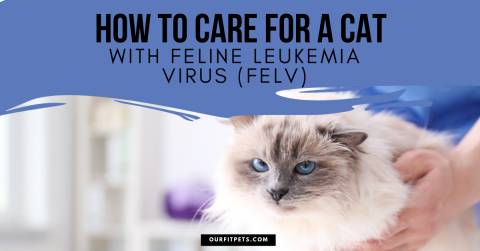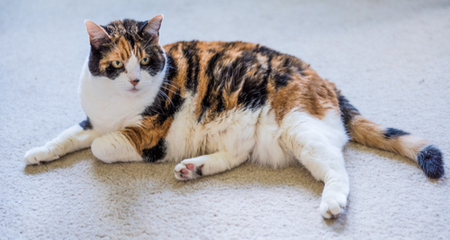Some pet parents like to unwind with a glass of wine, beer, or another type of alcoholic beverage after a long day. It’s not uncommon for your glass to be sitting on the table, when up jumps your cat only to take a sip! Is it OK for a cat to drink alcohol?
Connect with a verified veterinarian in minutes. Licensed vets are available 24/7 to answer your questions. No need to worry about your furry family member.
Cats & Alcohol: Can be a Lethal Combination
The quick answer is no. Alcohol can make cats very sick. It’s possible to cats to become drunk; however, if they have too much alcohol, they can develop alcohol toxicity.
Cats are very sensitive to ethanol, which is the most common form of alcohol in our drinks. If your cat only takes a small lick of a drink that contains alcohol, he’ll probably be OK. The problem is if the cat has more than that. It depends on the amount of alcohol the cat has ingested and how much the cat weighs. Not only that, but cats can even absorb alcohol through their skin or via inhalation.
Another issue is that alcohol is a depressant, which acts on the central nervous system (CNS). Alcohol can also irritate a cat’s digestive system, lead to liver damage, kidney trouble and more (especially in cats that have repeat exposure to alcohol).
As little as one teaspoon of alcohol can cause poisoning in a cat. Once you purr baby has ingested alcohol, her kidneys and liver will try to rid the poison from her body. However, when there’s too much alcohol, your kitty’s liver and kidneys overwork. They’re not able to get rid of the alcohol, which can lead to poisoning.
But it’s not only alcoholic drinks you have to worry about. Alcohol is also found in household products, including:
- Mouthwash
- Hand sanitizer
- Cleaning products
- Canned fuels
- Windshield wiper fluid
- Paint removers
- Rubbing alcohol
- Perfume
- Antifreeze
- detergents
- And many more
This may come as a surprise, but alcohol is also found in fermenting products (bread, grain, starches). With so many items that contain alcohol, it’s no wonder that alcohol poisoning is one of the most common reasons pet parents call a pet poison helpline!
Symptoms of Alcohol Toxicity in Cats
You may notice these symptoms after your cat has ingested alcohol (they may show up about 15-30 minutes after the cat drank the liquid):
- Nausea
- Vomiting
- Thirst
- Urination
- Dehydration
- Lethargy
- Incoordination
- Disorientation
- Hypothermia
- Low blood pressure
- Alcoholic bad breath
In some instances, alcohol ingestion can also lead to blindness, tremors, breathing difficulties, coma, seizure and death. As you can see, this can be a very serious health issue for cats.

Review symptoms, medications & behavior to keep your pets healthy with a Vet Online in just minutes.
Ask a Vet Live NowTreatment of Alcohol Toxicity in Cats
If you believe your cat has ingested more than a lick of alcohol, then be sure to call the vet right away. When you get to the clinic, the vet will perform a physical exam, run lab work, and more.
Treatment will depend on the severity of the cat’s symptoms and may include IV fluids, assisted ventilation, control of seizures, and more.
How to Prevent Alcohol Toxicity in Cats
Keeping your cat from drinking alcoholic beverages or eating products that contain alcohol can prevent your fur baby from developing alcohol toxicity. However, there are some other measures you can take to keep your kitty safe, including:
- Keep your cat out of the kitchen when anyone’s working with raw bread dough made with yeast.
- Invest in a pet-proof waste basket and garbage cans to keep your cat from eating/drinking products that contain alcohol.
- Store all household products that contain alcohol out of your cat’s reach. This can be challenging when you have a cat who can jump up and knows how to open drawers and cabinets! However, storing these products in a locked cabinet can ensure your fur baby doesn’t access them.
- Clean up all spilled alcoholic drinks or products immediately.
- Check with your vet before using alcohol-based products on your cat.
In most cases, the prognosis is excellent for cats who receive prompt medical treatment. However, it’s best to keep all alcohol out of your cat’s reach, never leave glasses unattended, and never give your cat an alcoholic beverage. Prevention is the best medicine—your cat will be much healthier without this deadly beverage.
Connect with a verified veterinarian in minutes. Licensed vets are available 24/7 to answer your questions. No need to worry about your furry family member.

Kyoko
Kyoko is from a family of 3 and moved to New York with her parents and siblings when she was 13. Kyoko is fond of spending a great amount of time with pets, specifically her beagle Luna and cat Missy. Her boyfriend often complains that she spends too much time giving attention to their animals. Kyoko has written dozens of articles concerning pets and is aiming at owning a pet shop one day!
Review symptoms, medications & behavior to keep your pets healthy with a Vet Online in just minutes.
Ask a Vet Live Now



